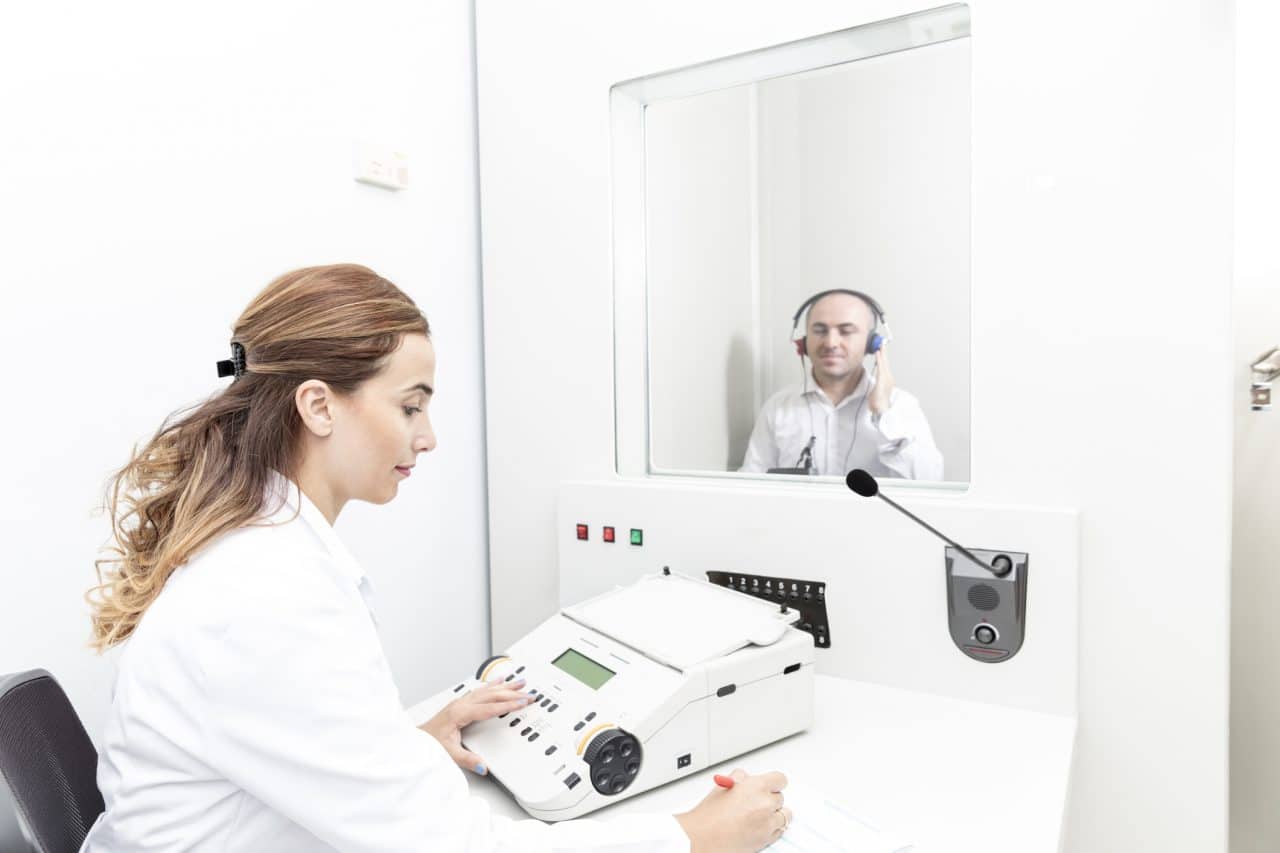Do you know your type and degree of hearing loss? The answer is most likely no. But that’s okay, because your audiologist sure does.
Below is a breakdown of why your degree of hearing loss matters and how this information influences your audiologist’s treatment recommendation.
How Is Sound Measured?

Sound is measured in both volume and pitch.
Volume, also known as loudness, is the measure of how much energy or intensity a soundwave produces. Measured in decibels (dB), the human ear can hear sounds as low as 10 dB and up to around 130 dB before becoming painful.
Understanding how loud sounds are is important, as anything over 85 dB can cause permanent damage to the delicate hair cells within your inner ear. Below is a list put together by the CDC showing the average decibel measurement of everyday sounds.
- Normal breathing – 10 dB
- Refrigerator hum – 40 dB
- Normal conversation – 60 dB
- City traffic – 80 dB
- Gas powered lawnmower – 85 dB
- Motorcycle – 95 dB
- Sporting event – 100 dB
- Maximum volume of a personal listening device – 110 dB
- Standing near a siren – 120 dB
- Firecrackers – 140-150 dB
Pitch measures the frequency of a soundwave, or how many times the wave vibrates per second. Frequency is measured in hertz (Hz). During a hearing exam, your audiologist will test a range of 250 Hz to 8000 Hz, as that encompasses the most important range for communication, speech frequencies.
Degrees of Hearing Loss
Slight Hearing Loss
- Cannot hear sounds below 15-20 dB
- Trouble listening to speech
- Below the threshold for hearing loss diagnosis
Mild Hearing Loss
- Cannot hear sounds below 26-40 dB
- Trouble understanding words when there is a lot of background noise
- Hearing aid may be recommended for children
Moderate Hearing Loss
- Cannot hear sounds below 40-69 dB
- Trouble understanding in-person speech and carrying on a television
conversation - Can benefit for the use of a hearing aid
Severe Hearing Loss
- Cannot hear sounds below 70-95 dB
- Cannot hear people speaking without the use of amplification
- May rely on lip reading
Profound Hearing Loss
- Cannot hear sounds below 95 dB
- Cannot hear without a hearing aid or cochlear implant
- May use sign language to communicate
To learn more about your type and degree of hearing loss or to schedule an appointment with your audiologist, contact Aaron’s Hearing Aid & Audiology Center.
